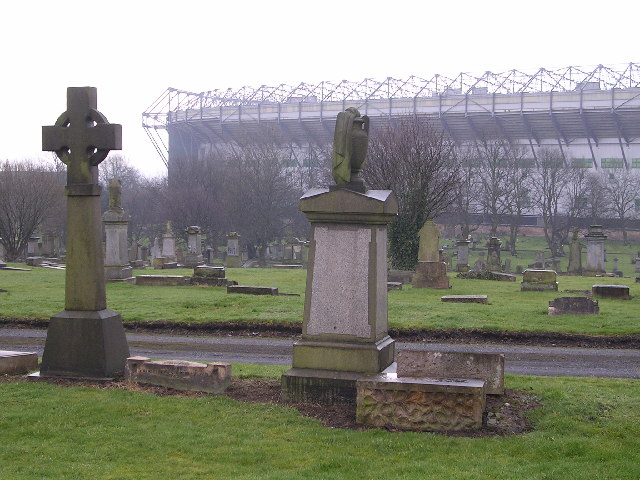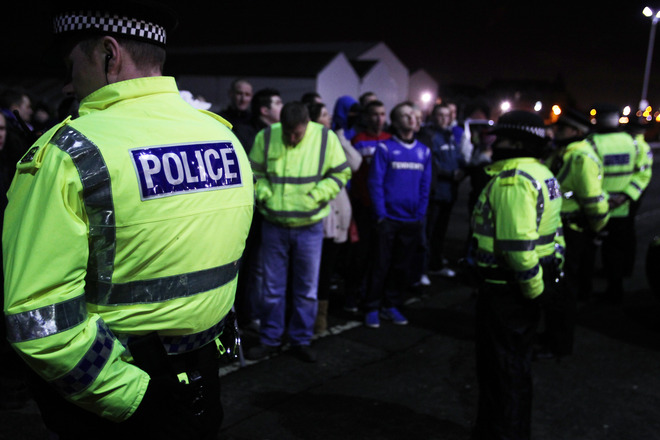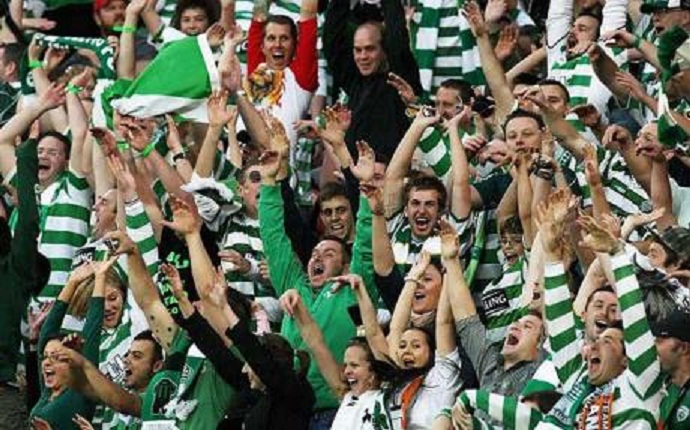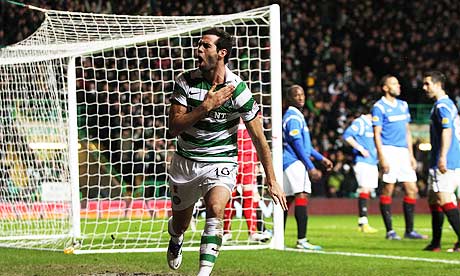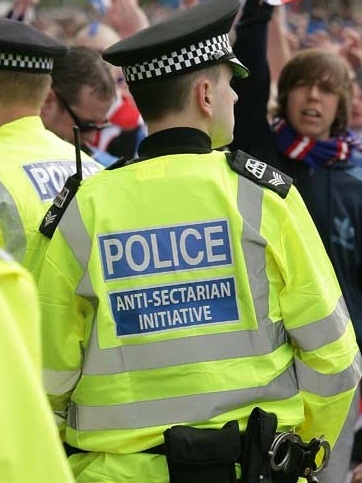The Brian Dempsey interview conducted by Eddie and Harry of this very site was not only a fascinating insight into a period full of uncertainty, fear, excitement and jubilation, but one that in turn was a further reinforcement of what many Celtic supporters feel. We may be the same, but we are totally different. The first issue was the one about offensive singing. This is an issue that has been debated extensively in many quarters, without complete agreement. Mr Dempsey argued that if a song is offensive to the ones on the receiving end, it should not be sung as this can cause hatred to manifest. The issue I have here is that where do you truly draw the line? When Leicester fans sing ‘We all hate Cov scum’ I am sure that some may be a little offended, but should it be stopped? No, and likewise when we accuse them of having an extra finger on each hand. Two provincial English sides are not wrapped up in a social, political and religious blanket that looms over Celtic. Calling someone an orange bastard at a football match may offend, but can the justification be that this is part of the rivalry? I am against simplifying matters to the 90 minute bigot argument that the other side came up with, but as long as hatred is not stemmed from football, then the notion of what is offensive will always be a grey area.
A wider notion in terms of the singing is obviously those in support of the IRA, and the latter day Provisional IRA. The Hearts game at the end of last season was filled with depravity and shame, and many will argue that singing from the old song book in the away end contributed to this. As one poster on a Celtic forum stated, the Provisional IRA are the joint ruling party in the north of Ireland. They have, in effect, been legitimised by the UK tax payers, so surely singing songs about their actions is acceptable? If we, however, return to the notion of offensive, many Celtic fans are offended by the open support for an organisation that killed Catholics and innocent people. It is an issue that will never truly be resolved, but all the while Celtic supporters take the moral standpoint about the deplorable Billy Boys and Famine Song, are we contradicting ourselves by revelling in support of the Provisional IRA?
Yet, this harks back to the initial question, what does Celtic FC mean? Studies have found that 74% of the fanbase consider themselves to be Catholic, and with the strong link between Irish republican and Catholicism there is the viewpoint that songs in favour of political groups exists because of history and identity. However, are songs that are openly in favour of the Catholic Church belted out at full volume? I for one, even as someone brought up a catholic, would find this cringe worthy. Can it truly be stated that Celtic is a Catholic club? The policy of signing players has never been restricted due to religion, and when the club itself states that they are ‘a club for one and all’ then should Catholicism even play a part? In an increasingly secular society, the attitudes of the Catholic Church on issues such as contraception and abortion are woefully out of touch, pitiful and completely embarrassing. Paradoxically, there does exist a prevalent view that, even if there are parts of your faith, politics, or football club that you disagree with, you will defend it in face of such adversity. This may explain the strong support in the face of the repugnant anti-Catholic attitudes that have polluted Scottish society for generations, hanging over a supposed welcoming nation like a black shadow. People who belong to a religion may be against certain views, but those on the outside should not be against the believer just because of a faith. This is an absurdity, and one that, in my opinion at least, has helped forge an aspect of the Celtic identity – the notion of family coming together in the face of adversity.
I remember the vast criticism from the Scottish media during Seville for all the Irish flags in the crowd and around the city. Some ‘journalists’ were apoplectic that few saltires were being waved, and some of the terminology, calling Celtic supporters ‘plastic oirish’ were insulting at best, racist at worst. There are thousands of supporters of this great club who have not a single strand of their being linking them to Ireland, so it is surely naïve to call Celtic an Irish club playing in Glasgow. However, the history of the club is linked with the aftermath of famine and oppression. With the political struggles that began in 1969, a generation of Irish were oppressed once again. However, in a multicultural society in 2011, the notion of ‘us’ and ‘them’ should not be created. Celtic is a club for all, and there should be no hierarchy in place. I was once abused by a drunk Irishman in the Barras because of my English accent. Celtic is, rightly or wrongly, known worldwide due to the Irish connection, and the club should arguably, from a marketing perspective, tap into this more. It is wonderful to pay homage to any Irish heritage, but some folk do assume that every Celtic supporter is Irish in some way, and this grates. An embracing, welcoming club, based on the initial notion of feeding the poor, is far more productive than exclusively limiting the core of an identity to one nation. The recent legends match typified what Celtic, in my eyes, should always place at the centre of its existence, charity.
On Twitter I posed a question in relation to Rangers’ well documented (unless you are a Scottish journalist) financial crisis, asking whether people would be happy if they went out of business. The vast majority of those who replied wanted to see the blue side of Glasgow sink into the abyss, never to rear their bigoted heads again. In my view, Rangers are a major contributor the identity of Celtic Football Club. Whilst completely rejecting the arguments of those who state that we are two sides of a sectarian coin, I firmly believe that without them, attendances would drop, competition would falter, and the sense of rivalry would dissipate. They have an illness that runs through the very core of their club, but I would not want them gone forever. The board of Celtic seriously need to consider its business relationship with them, as joint sponsorship and initiatives sends a confusing message to the masses. We are not alike, but do we need each other for the rivalry, if not the political issues that attach themselves like an unwanted insect?
How about on the park? Is there a clear ethos as to who Celtic truly are? I am proud that the club did not have a policy of recruitment apartheid, but is too much criticism given to those who are not ‘Celtic minded’? I have a friend who was constantly exasperated by my criticism of Strachan during the title winning years (from a purely Celtic perspective, not just because he relegated my first love in 2001). The football was dull, but I often heard folk saying that he was always fighting a losing battle because his heart did not beat to the sound of the supporters’ singing. Celtic Football Club is uniquely wonderful, and the football must be expansive and entertaining. Having a manager who can instill this into a group of players is crucial. Some can come from the outside and feel the passion, provided they have a good backroom team (Wim Jansen is an obvious example), but for those who treat Celtic as just another club the downfall can be brutal (Hello, John Barnes). Bobby Robson once said that Barcelona are representing a whole nation, and whilst this isn’t true with Celtic, but this club represents a people and a cause. The people are different in their outlook and the cause isn’t always fixed, but only those who truly understand the club will truly become a part of it.

